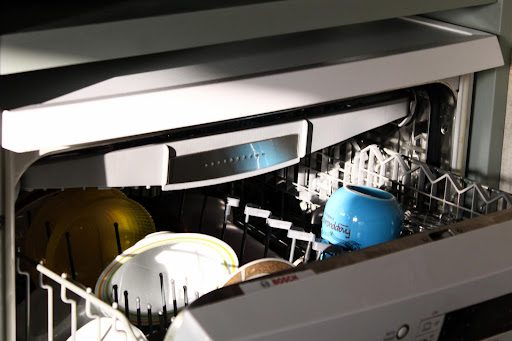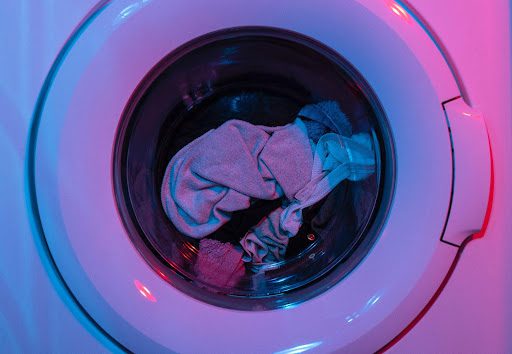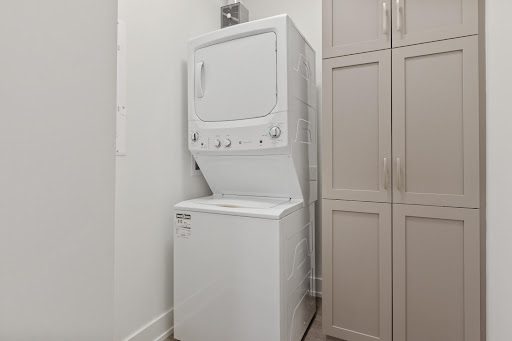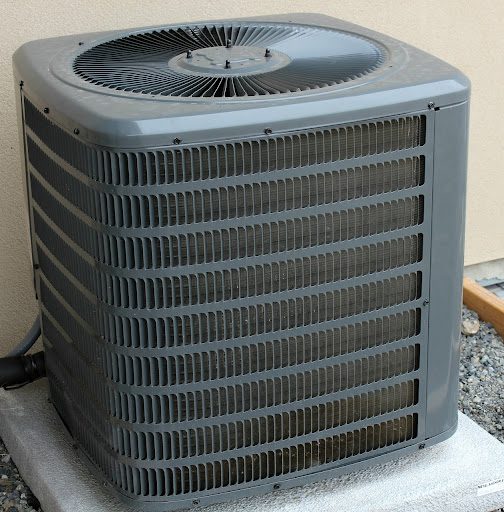5 REASONS YOUR HOME APPLIANCE KEEPS BREAKING DOWN


Everyday household appliances are there to make our lives easier. Every electric appliance will break down at some point, but many of these breakdowns are preventable. Unfortunately, some aspects of regular appliance maintenance and care are frequently overlooked by many homeowners, but keeping up with this maintenance is the key to ensuring a long life span for all of your electric appliances. Not to mention, knowing your appliances’ limitations is another way to avoid breakdowns. Pushing any device past its limits is sure to wear it down faster and lead to expensive problems. When you’re aware of your home systems’ limitations, you can avoid the heavy cost of appliance repairs.
So, if you want to ensure that your home appliances last as long as possible and avoid costly, frequent home repairs, making yourself aware of the reasons behind an electric appliance failure and the signs to look for is the first step. Today, whether it’s your refrigerator, washing machine, dryer, heater and air conditioner system, or another appliance, we’ll examine five of the most common reasons behind home appliance breakdowns. Let’s get started.

When most people think about cleaning their refrigerator, they imagine wiping down all those fingerprints from the front door, wiping off the handles, and dusting off the top of the fixture. However, caring for your refrigerator is a touch more involved than that. All refrigerators have coils that cool and condense refrigerant to keep the air inside your refrigerator at the desired temperature. If these coils become clogged, they’ll be unable to release heat efficiently, taking a toll on these vital kitchen appliances. As a result, the compressor has to work harder, using a higher amount of energy and placing the entire electric appliance under unnecessary strain. This strain can cause your energy bill to increase and lead to premature appliance failure. Therefore, it’s crucial to clean your refrigerator’s coils at least twice a year to prevent these problems. The coils are most often located either on the backside or the underside of the refrigerator. Many homeowners run a vacuum cleaner across the coils to suck up any unwanted dust or debris.
Another cleaning factor that can lead to a breakdown is the refrigerator’s door gasket. The door gasket is a small strip of rubber that outlines your refrigerator door and seals in the cold. If this part of your refrigerator breaks, it’ll be unable to make a proper seal and regulate its internal temperature, leading to spoiled food and a breakdown. These gaskets often accumulate food waste, such as spilled condiments, drinks, and other food items, which makes them sticky. Neglecting to clean this residue will eventually lead to the gasket breaking down and tearing away from the door itself.

All major appliances come with an owner’s manual for a reason. This manual outlines everything from how to set up the appliance to regular maintenance procedures to troubleshooting guides. Yet, we’re all guilty of not always reading these manuals or even throwing them away once we have the appliance installed and working correctly. However, these manuals also outline essential aspects of your appliance that need to be followed to ensure it lasts as long as possible.
When it comes to washing machines and even your electric clothes dryer, manuals include the weight limit. Many homeowners are surprised to learn that their washing machines have weight limits. However, exceeding this weight limit with a load of dirty clothes can lead to a number of expensive issues, which can vary depending on if your washer is front-loading or top-loading. For example, overloading a top-loading washer can damage the drum bearing, burn out the motor or drive belt, and even cause smaller items to float to the top and lodge themselves in the pump. Overloading front-load washers can cause all of these problems in addition to damaging the washing machine’s door lock. A damaged door can lead to a poor seal and flooding issues for your laundry room. All of these issues are expensive to repair individually, so needing to repair multiple components due to overfilling your washer can get overwhelming. So, always keep the owner’s manual for any major system, and don’t forget to check the weight limit to ensure you’re loading your washing machine correctly.

When your clothes dryer is tumbling a full load around, the physical agitation and high heat will cause your clothes, towels, and other linens to shed some fibers, also known as lint. Your electric clothes dryer’s lint screen is responsible for catching a lot of this lint to prevent it from obstructing the vent hose. Aside from keeping your vent hose free of obstructions, it’s crucial to clean out lint for other reasons, too. For example, if the screen is clogged with a thick layer of lint, the clothes dryer will need to work harder to do its primary duties. As a result, this higher amount of energy consumption will drive your utility bills up. Any chance you get to take some of the pressure off of your fixture will lessen the normal wear and tear. Reducing this normal wear and tear not only lowers the chances of needing emergency home repairs but also helps make your dryer last significantly longer. Finally, one of the most important ways a clean lint screen protects your appliance and home is by reducing the risk of a fire. Electric clothes dryers operate at high temperatures, and lint is a highly flammable substance, making for a dangerous combination. Regularly removing the lint from your clothes dryer will keep your home and whole family safe from the chance of a fire.
It would be best if you cleaned your clothes dryer’s lint screen between every load of clothes. Most lint screens are located either on top of the clothes dryer or just inside the door. However, you can consult your owner’s manual to be sure. When it’s time to clean the screen, simply pull off any lint stuck to it and insert the screen back into its housing. If fabric softener and dryer sheets have caused a sticky buildup on the screen, you can soak it in hot water and gently scrub it with a soft-bristled brush to clean it.

Dishwashers may have the job of keeping your dishes clean for you, but you have the job of keeping your dishwasher clean. From clogged filters to stopped-up spray arms, a lot can go wrong with a dishwasher that’s been neglected. For example, if you don’t know where your dishwasher’s filter is, chances are it’s clogged with food waste. If you don’t regularly clean out your filter, small chunks of food waste will accumulate and decompose into a slimy mess that gunks up the filter. If the filter is left clogged, it will impact water flow and lower the unit’s performance, leading to dishes not coming out clean after a complete cycle. Not to mention, if the filter is neglected for too long, it can even cause an overflow.
In most cases, you can find the filter on the floor of the inside of your dishwasher. Simply unscrew the top and lift out the filter. You can clean the filter by running it under warm water and scrubbing it with a soft-bristled brush and dish soap. Let the filter air-dry before you reinsert it into the fixture. This filter should be cleaned about once a week, depending on how frequently you use your dishwasher.
In addition to your filter, you should clean the door gasket in the same way as your refrigerator’s gasket, as not cleaning it will cause the same problems. However, the importance of a proper seal is even more critical when it comes to dishwashers, as an improper seal will lead to water flooding out during a cleaning cycle. It would help if you also showed the spray arms some attention. If the spray arms in the dishwasher become clogged, they can’t spray water as well, and the unit will need to work harder, which can cause it to break down sooner.

Your HVAC unit is another critical electric appliance many homeowners depend on. When an HVAC unit breaks down, it can leave you with below-freezing temperatures during the winter and high temperatures in the summer. Not only are these temperatures unsafe for you and your whole family but they can cause a myriad of other problems in your home, such as damaging other electronic appliances and water pipes. So, it’s vital that you take care of this appliance as well. One of the most common issues homeowners deal with when it comes to their home’s heater and air conditioner systems is not changing the air filters frequently enough, if at all.
Most homeowners know to change the air filters from time to time, but if you’re not changing them enough, it can still cause damage. These air filters collect the dust, debris, and other toxins from the air that the system circulates throughout your house. Over time, this dust and debris will clog up the air filter, forcing the unit to work harder when heating or cooling your home and adding to your indoor air pollution.
As often as these units run, forcing them to work harder will wear out the various components of the HVAC system much faster than usual. As a result, you’ll experience more frequent breakdowns and a utility bill that climbs higher every month. On average, a typical house will have two of these air filters in its intake vents. However, this number may be more or fewer depending on the home’s square footage. The recommended time frame to change your home’s air filters is every three months, although homeowners with pets should change their filters every two months instead due to the extra debris from pet dander and hair to further reduce normal wear and indoor air pollution.
In addition to routinely changing air filters, your HVAC unit should have a maintenance check and tune-up at least once a year to ensure it’s functioning correctly. It may add to your yearly expenses a bit, but the peace of mind knowing the chances of experiencing a breakdown in the middle of a cold winter night are minimal is well worth the price, not to mention the money you’ll be saving avoiding costly home repairs. An experienced HVAC technician will know all of the signs and symptoms of an issue with your heater and air conditioner system and can take care of it.
In addition to all of these preventable problems that many electric appliances face, there are many other unexpected issues that your appliances may experience that can cause a breakdown. Unfortunately, some of these problems aren’t as easy to avoid as cleaning out a filter or wiping down a gasket. A major part of homeownership is finding a way to deal with the cost of repairs in an affordable way when you suffer household appliance breakdowns.
Like our team at AFC, a dependable home warranty company offers various warranty plans with comprehensive coverage to suit your home’s needs in the event of an unexpected breakdown. These comprehensive home warranty plans cover a wide variety of common household appliances and home systems to apply an additional layer of protection. When you combine keeping up with your appliances’ regular maintenance with a home warranty plan, you’re giving your household appliances the best chance at lasting as long as possible.
When you choose a home warranty policy with our AFC home warranty company, you’ll have peace of mind knowing many of your household appliances will be covered with the cost of repairs.
If you want to learn more about why household appliances break down or about our various home warranty plans, feel free to visit our homepage or contact us today!

Coverage not available in CA, WA and HI